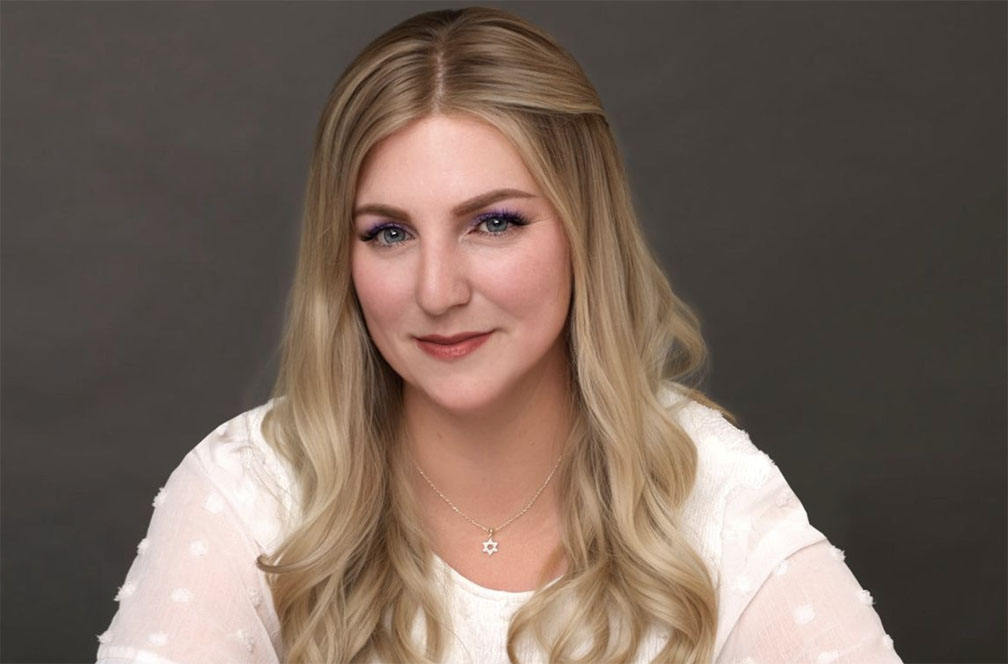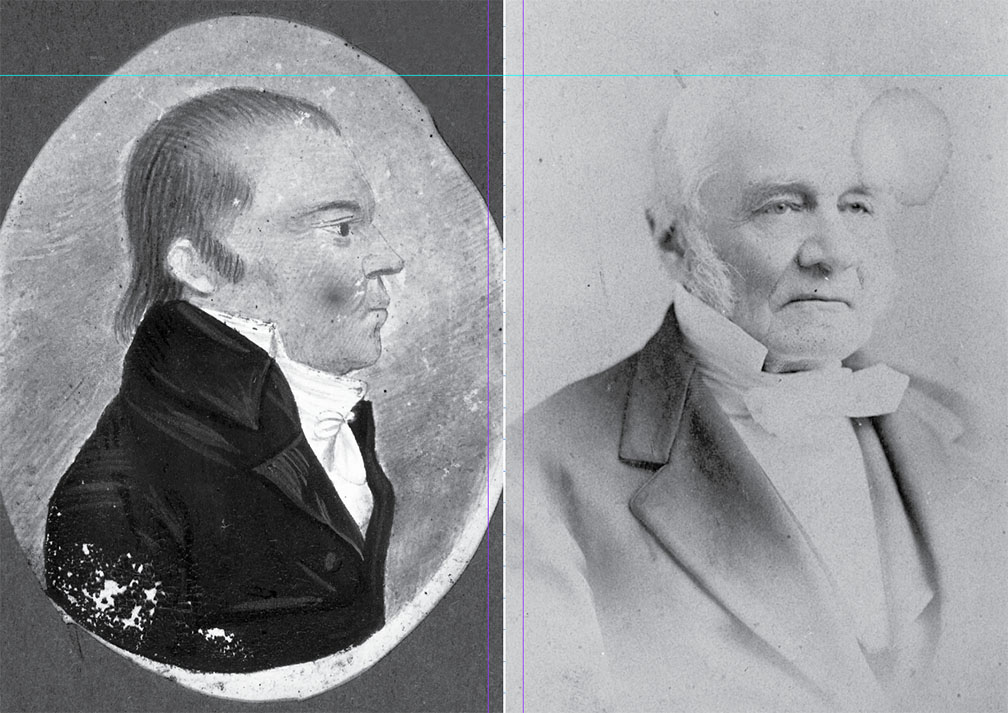
Since Oct. 7, CyberWell, the first real-time database of online antisemitism, observed almost an 86% increase in online antisemitism across major social media platforms. In response, they have created notifications that flag offending posts, and are used by platforms to collectively act on over 50,000 pieces of content in a short period.
CyberWell was founded by Tal-Or Cohen Montemayor in May 2022 as a nonpartisan nonprofit organization based in Israel. The online monitoring service uses AI and open-source intelligence techniques to create a picture of online antisemitism. “Our mission is to drive greater enforcement of content policies in the online landscape,” Cohen Montemayor told The Journal.
Cohen Montemayor was born in Studio City and spent the first years of her life in Los Angeles before her family moved to Maryland. After graduating high school in 2009, she made aliyah with Garin Tzabaran, an organization which helps young Jewish adults to join the IDF.
Post-military service, Cohen Montemayor studied law but eventually transitioned from legal practice to her current role as an advocate against online antisemitism. She practiced hi-tech, corporate and finance law for a couple of years and then worked at “a boutique open-source intelligence firm that specialized in extremist movements in the United States, hate crimes and antisemitism in the darker corners of the internet.” Recognizing the urgent need for action in the face of escalating hate speech and misinformation, she founded CyberWell to address the digital landscape’s challenges. Since Oct. 7, her team has been very busy dealing with a surge of hatred toward Israel and Jews online.
“Our analysis highlights what the digital policies of these platforms fail to enforce.”
“What’s really unique about CyberWell and why we are changing systematically the way that antisemitism operates online, is that we add an element of digital policy compliance to the work that we do,” Cohen Montemayor said. “It means that we’re not only monitoring online antisemitism across the major social media platforms Facebook, Instagram, TikTok, YouTube, and X in both English and Arabic, but our analysis highlights what the digital policies of these platforms fail to enforce.”
Cohen Montemayor said that her company successfully verified between 3,000 to 5,000 posts with antisemitic content every year. They are able to package and share the data with actionable recommendations rooted in digital policy compliance of the platforms themselves. This empowers the Trust & Safety teams at social media platforms’ to remove many more examples of antisemitic content that violate their policies and remove these surges in Jew-hatred at scale or consider policy shifts to accommodate modern trends of antisemitism. Since Oct. 7, CyberWell’s compliance alerts have “led to the removal of tens of thousands of antisemitic posts and the prevention of exponentially more examples of antisemitism from ever being posted through automated flag and removal measures on the platforms.”
These posts and associated reports significantly influence the strategic direction of policy and content moderation teams, resulting in the removal of tens of thousands of such posts annually.
According to Cohen Montemayor, Meta has made a series of important and impactful steps to try to address online antisemitism and pro-terror content in the last few weeks. “The first one was deplatforming [Iranian Supreme Leader Ali] Khamenei from Instagram and Facebook,” she said. “The second one was taking a closer examination at how the word Zionist is being used as anti-Jewish and anti-Israeli code word to promote antisemitism.”
CyberWell has identified several major narratives leveraged against “Zionists” that are rooted in classic Jew-hatred including that they “purposefully” target and kill children because of “who they are.” There is also language that they are pigs or the sons of monkeys and pigs — often coupled with classical anti-Jewish imagery — and that the Zionists are in some worldwide power conspiracy theory or covertly running governments all around the world. Many of these antisemitic narratives are not consistently red-flagged by the existing community standards and certainly not captured by content moderation enforcement in practice at Meta.
Once an antisemitic post is located, CyberWell reports it to the media platform, but until it’s removed and dealt with, the damage is already done and the hatred spreads. “Every social media platform has what’s called an internal strike system which is internal policy on how many times an account can violate the social media platform policy before being removed,” Cohen Montemayor explained. “YouTube is probably the most straightforward of these policies. If you violate their policy three times within 90 days, your account is suspended. It’s like the three strikes, you’re out concept. This strike policy varies platform by platform in terms of how these things are really implemented, but obviously since CyberWell is doing this monitoring of real time antisemitism, surges and natural outgrowth of what we do is also accountability for those accounts spreading antisemitism.”
Because people are able to evade policies, overt antisemitism remains a pervasive presence online. CyberWell’s research shows that social media platforms intervene against antisemitic content from regular accounts only 31% of the time. This statistic underscores the pressing need for platforms to prioritize technological advancements and enforce policies more effectively. With over 80% of Jews encountering online antisemitism, CyberWell endeavors to offer practical suggestions for the large-scale removal of such content, serving as both a catalyst and a guardian in the battle against online hate.
“Oct. 7 denial and distortion is the Holocaust denial of our time,” Cohen Montemayor emphasized. “The biggest difference is the technology that’s available to spread the misinformation and hatred. In Holocaust denial — which reached its peak in the ‘80s early ‘90s — it was in very fringe circles and the people who were part of the quote-unquote revisionists movement, were very limited to traditional sources of media. If they were ever invited for an interview they’d be challenged, they’d be debated, they’d be hung out to dry. When it comes to Oct. 7 denial and distortion, we saw not only a very purposeful campaign to spread misinformation and disinformation, but also we saw accounts that were located in the Middle East, getting disproportionate traction exposure.”
One example from the report highlights an account in Lebanon with only 3,000 followers that tweeted multiple times a day and garnered over 3 million views. “It’s not just an issue of the content of this denial campaign, but also the concerning level of traction and exposure it’s receiving,” Cohen Montemayor said.
If all of this seems discouraging, don’t lose hope. According to Cohen Montemayor, social media platforms are genuinely interested in enforcing their own rules; they simply lack the necessary expertise.
With CyberWell’s assistance, there’s hope for finding a solution to address antisemitism in the digital era and eradicate it altogether. However, it’s also up to users of those platforms to take action. It’s crucial to report and flag each antisemitic post or any spreading misinformation. Even if it may seem ineffective initially, there’s power in collective action. If people refuse to ignore such posts or videos they come across, change will eventually prevail.

































